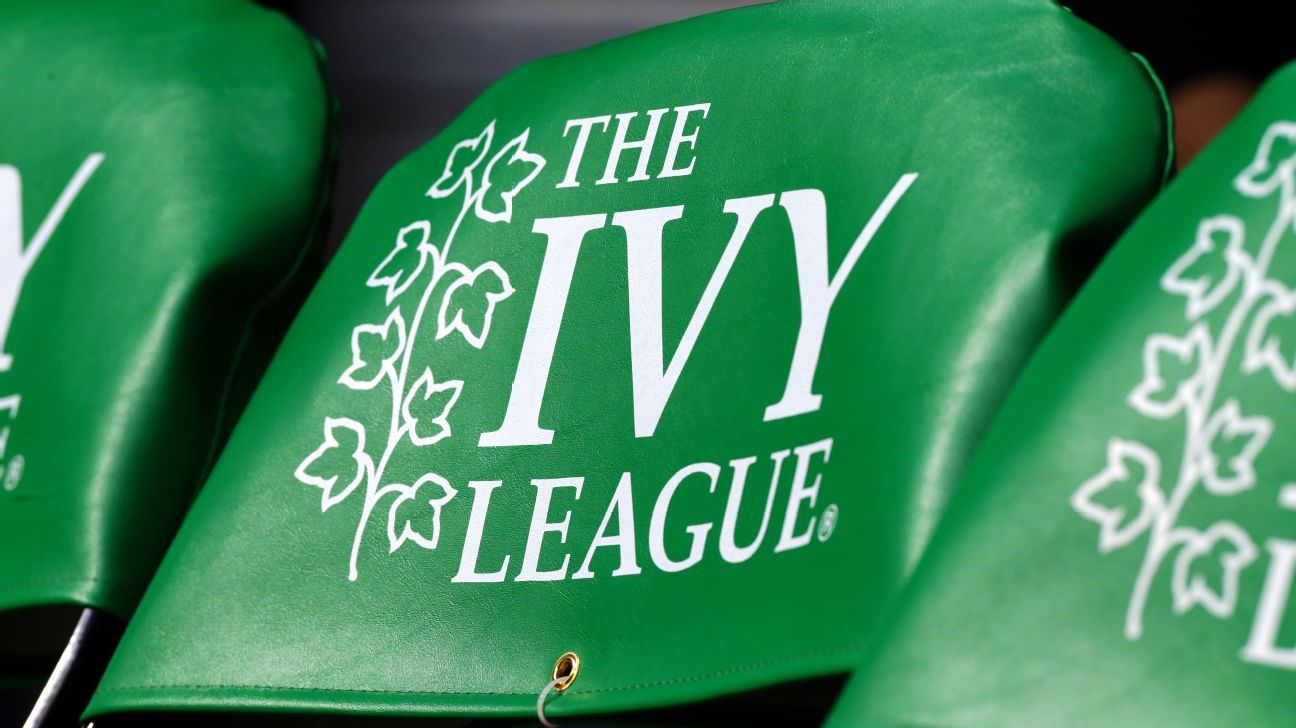The Ivy League is considering two possibilities for an altered football season because of the ongoing coronavirus pandemic, including forgoing the entire fall in favor of a seven-game, conference-only, spring season that would begin in April and conclude in mid-May, according to a sourced report from TMG Sports.
According to the report, the Ivy League is also considering opening the 2020 season in late September with a seven-game schedule comprised of only conference opponents. The Ivy League normally plays a 10-game schedule that tentatively begins this season on Sept. 19.
A spokesperson from the Ivy League would not confirm the report Monday, but issued the following statement:
“The Ivy League Council of Presidents has been meeting frequently via videoconference this spring,” the statement read. “Should the Council of Presidents make a determination regarding the status of intercollegiate athletic activity at Ivy League schools, that decision will be communicated first to Ivy League directors of athletics, coaches and student-athletes, followed by the wider Ivy League campus community, media and public.”
As college football players throughout the FBS have returned to voluntary workouts throughout this month, several schools have reported multiple positive test results for COVID-19. Since it began testing on June 1, Clemson has conducted 430 tests, with a total of 47 positive results. Houston’s voluntary workouts came to a screeching halt after six athletes across different sports tested positive and were symptomatic. At Kansas State, 90 players initially tested negative when they returned to campus on June 8, but within a week, 14 players were positive after a second round of testing. The Wildcats were forced to shut down for two weeks.
The Ivy League schools haven’t all opened yet, and when they do, their athletes don’t participate in summer workouts like other conferences — and executive director Robin Harris told ESPN in a recent interview that will work in their favor.
“Candidly, we benefit by not having these workouts typically in the summer and certainly not now with our campuses not yet open, so we are going to learn as others come back and we see what happens,” she said. “We’re going to benefit. I’m on calls with other commissioners several times a week and we share information, our athletic directors are talking to their counterparts within the state, within the city, because there is no playbook for this.”
Harris said the conference hasn’t yet figured out how it will handle fans in the stands, but those decisions will come after all of the schools are open and have figured out how to safely usher the student-athletes, coaches and other staff members back.
“We’re very fortunate in the Ivy League that most of our schools have iconic stadiums that hold tens of thousands of people,” she said. “Our crowds don’t necessarily reflect the size of the stadium. It’s easier to have social distancing when you have a stadium that holds 60,000 and our typical crowd is not that. For us, the crowds are easy to figure out in a way, and our schools are certainly working on that as well.”
While the Ivy League is working on various models for this football season, it’s not alone. Most conferences at every level have been working on contingency plans in case the season is disrupted by the coronavirus pandemic. The Ivy League is different from many in that it doesn’t have to worry about its athletes flying to games.
“The furthest [trip] is Penn to Dartmouth and that’s like a six-hour ride,” Harris said. “We typically have rules about who can stay overnight when you travel to an Ivy contest. We’re considering to limit exposure, do we want to maybe not have some of the trips that are overnight be overnight, but we also have to be careful about student-athlete well-being and not make a one-day trip if it’s too long, but that’s something we’re exploring and we’re able to do that because our schools are relatively close together.”
The Ivy League was the first to cancel its conference basketball tournament this past spring, starting a chain reaction of cancellations across the sport at every level.
“Because campus gatherings were limited to 50 or 100 people, we had no school that could host the basketball tournament for us,” Harris said. “We weren’t going to do that. We weren’t going to create an exception for athletics that didn’t apply to the campus at large. That’s how we made the decision, and it turned out the rest of the world followed in like 24 hours.”
